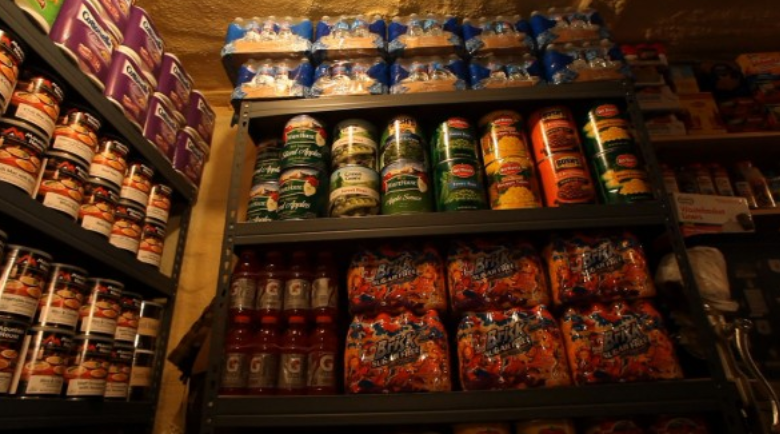 By Mac Slavo
By Mac Slavo
Prepping? You should be thinking about what you might need.
But focusing all your time and energy on the wrong priorities can leave you just as ill-prepared as if you had done nothing at all.
City Prepping shares his top 6 priorities for being ready – starting with the most obvious necessities and working towards an expanded plan for survival in case of the worst.
Whether or not you agree with his specific order of operations, starting with a solid foundation and working towards the more extravagant possibilities is a good way to plan and develop skills.
Becoming fully prepared is an ongoing process and will undoubtedly require a lot of effort on your part, but starting here will make sure you can survive most situations, as further steps will cover the less likely “what ifs.”
Check out the video:
- Water is an absolute necessity, and drinking unsanitary water will make you sick. Make sure you have a plan to have enough clean water. Store it, treat it, purify it, have access to it. How much water do you need? 1 gallon per person per day for drinking, cooking, sanitation and the like. Water preservative can help keep it long term, and make sure it doesn’t become contaminated.
- Storable Food. Extra food can be built up gradually a few cans at a time, and rotated out. Get items that you would actually eat, and balance your needs between protein, fats and carbs. Many canned foods have lots of extra sodium, which requires more water to balance out. In the event of a power outage or other emergency, eat the perishable foods you have on hand first, since they will of course go bad soonest.
- How will you cook your food? Keep extra fuel and useful stoves, grills, etc. on hand that aren’t reliant on the electric grid, or far away resources that would take a lot of effort to gather or obtain.
- Where to store food an water? Basements, closets, under stair storage space, etc. to keep it cool and away from sunlight.
- Medical care preps, supplies, equipment and, of course, skills. First aid kits and basic medical skills, including C.P.R., are essential. Know how to handle major and minor cuts, stop bleeding and keep wounds from becoming infected. Learn how to clear an airway, when and how to use a tourniquet and take classes from your local medical authorities if you can. Know how to treat shock, since it is very common during stressful situations – and basically anything that falls under SHTF.
- Having cash on hand. If/when the grid goes down, credit cards and online payment systems will be out altogether.
- Securing your home. The widespread instability will leave countless people desperate and willing to invade your home and/or attack your family or group. Avoid conflict when possible, but have firearms and other weapons to defend your family, your preps and your property. What type of gun is best for you is a matter of preference, training and the amount you are willing to invest; however, ideally you would want a rifle or shotgun as well as a handgun, among other options. Train and continue to train as much as possible.
- Prepare to bug out (but don’t leave unless it becomes necessary). Bugging out early and without need could put you in greater danger of exposure to the elements or bad circumstances, and your home may be the best place to stay. Nevertheless, you should have your bug out bag and plan ready to go, and execute when the time is right. It should provide all your vital needs for 72 hours, and will be different for each person and geographic area.
Tailor this list to your own specific needs, and do your due diligence to be ready for whatever may come.
Stay vigilant and protect those who you love.
Everyday Carry Gear – 11 Items You Should Always Have on You (Ad)
Read more:
- The Prepper’s Blueprint: Step-by-Step Guide to Prepare You for Any Disaster
- How to Start Prepping Without Breaking the Bank: “All About Self-Reliance”
- “All The Prepping In The World Is Immaterial If You Don’t Survive Long Enough For Your Supplies & Planning To Matter”
- 10 Prepping Mistakes That Could Get You Killed (And How To Avoid Them)
Click here to subscribe: Join over one million monthly readers and receive breaking news, strategies, ideas and commentary.
You can read more from Mac Slavo at his site SHTFplan.com

In 2012 Venezuela was disarmed, and told that hoarding food was illegal, and given food ration cards.
We are pretty close – still working on a water supply though.
TY to all that bring forth preparedness.
Prepare for the worst.
Hope for the best.
Will having ‘cash on hand’ be useful when the dollar may not have any value in a SHTF/economy collapse scenario?
it will come in handy when you run out of toilet paper
Exactly!
Guns will not be the best solution to kill animals for food, or to shoot someone who is trying to kill you, or get your supplies. Everyone around will hear the noise, and come investigate. Invest in snares, or bow and arrows! They kill quietly!